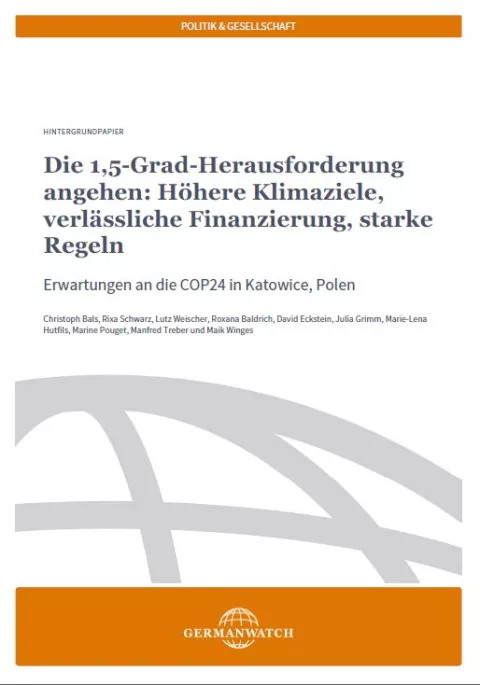
The world’s governments meet for COP24 at a crucial time: The impacts of climate change are increasingly being felt around the world – the 2018 heatwave impacted many parts of the globe. In its recently published special report, the Intergovernmental Panel on Climate Change (IPCC) showed more clearly than ever before that only a few years remain to get the climate crisis under control. But the international community is hampered not least by the U.S. Government. In Germany, too, environmental activists are fighting for the preservation of the Hambach forest and rapid coal phase-out, while the fossil energy industry is trying to preserve its business model for as long as possible. This is, in short, the setting for the 24th Conference of the Parties (COP24), which will be held from 2 to 14 December 2018 in Katowice, Poland. The task for this summit is to show that, even with political headwinds, the international community is able to respond to the increased urgency of the climate crisis. With a package of three decisions, COP24 will be a success:
Improvement of climate mitigation commitments
Firstly, the nationally determined climate targets submitted so far are not sufficient to achieve the Paris targets to limit global warming to well below 2°C, or better 1.5°C. This year's Talanoa Dialogue is set to encourage and inspire countries to improve their national climate plans – i.e. to raise targets, include sectors such as agriculture and transport in addition to energy, and to develop measures for the implementation of their goals. In Katowice, all countries should commit to prepare enhanced national contributions by 2020, in particular the main emitters, industrialised and emerging. But even before 2020, it is the industrialised countries such as Germany that must show progress in climate action!
More predictable climate finance
Secondly, Katowice needs to develop a comprehensive financing strategy for climate action in developing countries. In order to enable developing countries to implement climate mitigation and adaptation measures, industrialised countries must – as promised in Paris – provide significantly more climate finance than before. The German Chancellor has pledged to double Germany’s international public climate financing by 2020. Now action must follow! Also, the Green Climate Fund needs to be replenished in 2019, at a more ambitious scale than in its first financing round. Corresponding announcements in Katowice by important donor countries such as Germany and France would greatly promote international dynamics.
Adoption of the Paris Implementation Guidelines
Thirdly, the most important technical aspect is the so-called rule book, the implementation guidelines of the Paris Climate Agreement (adopted in 2015). These rules are intended to ensure that the Paris Climate Agreement can be implemented from 2020 onwards with the necessary transparency and an ambition mechanism, enabling international cooperation. Clear and robust provisions are needed, for example, for the submission of national climate plans (Nationally Determined Contributions, NDCs), for the transparency, measurability and international comparability of targets and actions as well as the five-year review of global progress towards achieving the Paris goals.
The full Background Paper on Expectations for COP24 in Katowice, Poland, is available in German.











